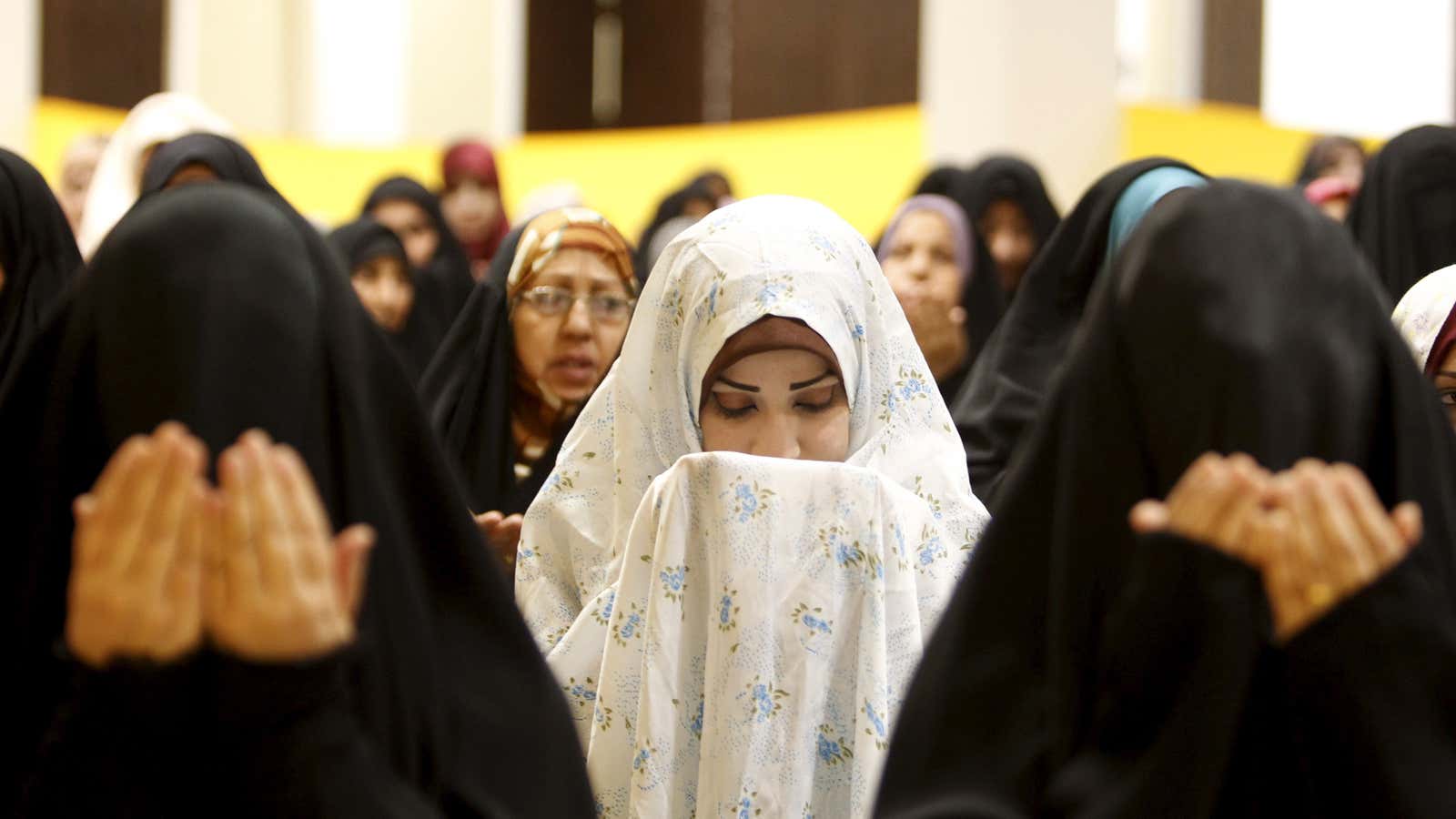A comprehensive new study from the Pew Research Center finds that, in most of the world and in almost all religions, women are more religious than men. But for Muslim and Orthodox Jewish women, it’s not so simple.
A greater percentage of women than men identify with a faith group worldwide, according to Pew’s analysis of 192 countries and territories—83.4% of women versus 79.9% of men. Women also pray more than men. In 43 of 84 countries surveyed by the Pew Research Center, women say they pray daily in higher numbers than men, sometimes by as much as a 20 percentage points. That’s true in Greece, Chile, Argentina, Colombia, the Dominican Republic, and Italy.
Even women who aren’t affiliated with a religion say they pray more than men who aren’t affiliated, most notably in Uruguay and the United States, where unaffiliated women are more likely than unaffiliated men to report daily prayer by 12 and 11 percentage points, respectively. Women are also more likely to report going to weekly service if they live in predominantly Christian countries.
But in the 39 countries where the Pew has collected data specifically on Muslims and service attendance, men report attending weekly services much more than women, by an average of 28 percentage points. This is also true among Jews. In Israel, where the dominant religion is Judaism, Jewish men are 19 percentage points more likely to report attending weekly service than Jewish women. This trend is stronger among Orthodox Jews—among American Jews, the Pew reports, the gender gap is three percentage points.
The gender gap is most notable in the top five countries where Muslim men say they attend weekly services more than Muslim women: Afghanistan, Pakistan, Bangladesh, Tajikistan, and Senegal. There, the margin that separates them is higher than 50 percentage points.
The practices of specific mosques or communities, which may not require women to attend Friday prayer at a mosque, may influence the gap in reported attendance. That does not mean Muslim women don’t practice their faith. Pew also reported that Muslim women are just as likely to say they pray daily as Muslim men. Indeed, in the 40 countries where Pew collected data there is “virtually no difference” between Muslim men and women who say religion is “very important” to them.
The gender gap among Orthodox Jews can be explained by similar practices regarding attendance. Worship services can’t take place unless a quorum of at least 10 men are present, Pew noted.
